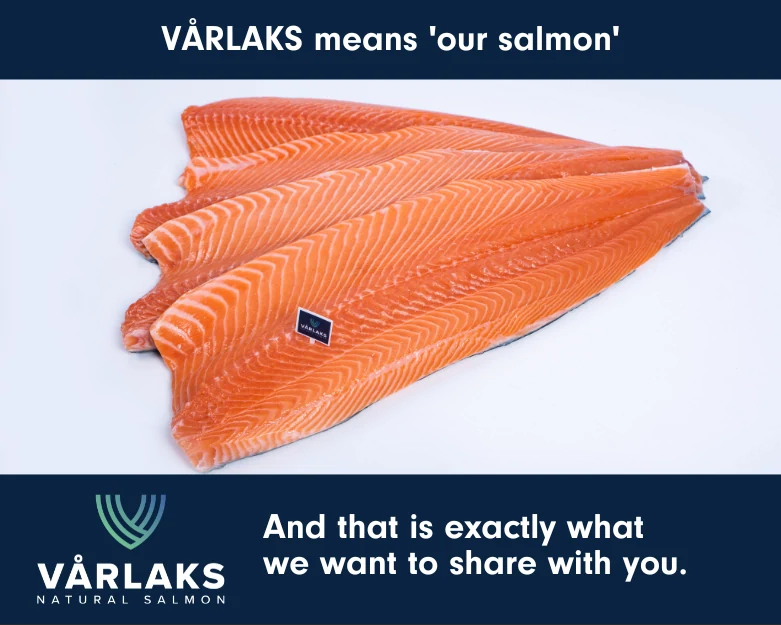Direct Seafoods Director of Sustainability & Epicurean Laky Zervudach on the importance of the “story” in salmon.
Major wholesale seafood and fish supplier Direct Seafoods supplies caterers big and small around the UK with fresh and frozen fish. Talking to SalmonBusiness, Zervudach reflected on the importance of sustainability.
During a panel with Veramaris Global Business Development Director Ian Carr and Fair Seas Limited Director Mike Mitchell at the Aquaculture Innovation conference in September, Zervudachi praised the algal oil producer Veramaris for their raw material algae feed additive.

DSM & Evonik’s joint venture Veramaris is attempting to create a new sustainable salmon feed additive while addressing the lack of nutritional value in fish.
Sustainability
At the time, Zervudachi said: “With retailers, you have a small number you need to convince you’ve got a story there”.
He said: “If a big corporate enterprise like a bank or a pharmaceutical company was contracting a food service,- these days they will always be sub-contracting their catering to one of the big caterers such as Compass or Sodexo. When they are bidding for these contracts – sustainability comes high on their agenda.”
Zervudachi himself has a good story. He’s been in the business for over 35 years years and started out selling fresh fish caught on the south coast to all the big-name high-end restaurants Scott’s restaurant, J Sheekey, Annabelles Nightclub and the Ivy.
Today, the role of sustainability and provenance plays a huge role in Zervudachi’s job when sourcing fish for Direct Seafoods’ customers.

Cleared up its act
Is salmon a good story?
“Salmon is one of those stories that is quite complicated as there is a negative lobby out there. Some NGOs want to paint a negative image of the industry. They won’t understand there are some positive stories to tell,” he explained.
“You almost have to tell story individually and then give examples of best practice and explain that, by and large, the salmon industry has cleared up its act over the past 30 years. As an industry, it takes itself very seriously as the negative impact tarnishes the whole sector,” he said.
What about getting something like Linglaks’ Vermamis-fed salmon through to the market?
“As someone in the middle, we can start telling that story to our customers. We can say to one of our big contract caterers ‘here is a new way of doing things and do you think that this is something you can buy into?’
Is it something Michelin chefs may be interested in?
“It will take time, but it’s like all these things, it’s a massive change. But especially when there is a cost. Which can be difficult as especially when salmon is almost a commodity product,” he said.

Create throughput
“With Michelin restaurants, the answer is they can have some impact but volumes are in real terms so small, you’d have to focus on getting one or two big players involved. From a logistical point of view, to make the whole system work, you will have to get volume through the business. You’d need some of the big players to buy into it first so you can create throughput. Without that, it would be too difficult”.
“As we have to react very quickly, we would have to be carrying stock of that product. If a Michelin star chef had it on the menu, it would be impossible to bring him/her one case every week. So one needs to focus on how to get the market to move in that direction,” he said.
Very competitive
If price-wise there was very little difference, Zervudach said that Direct Seafoods could add it as one of its selling propositions: “We can say, we have a salmon here that is different to everyone else’s but its much more sustainable. However, If there was a big price difference, the market as it is, is very competitive”.
With sustainability on the menu closing in on taste in terms of importance in the public eye, Zervudachi was confident in the future.
“Sustainability is changing people’s views on what they buy, which is key. It hadn’t changed a lot up until two or three years ago. But people are starting to take it seriously with a focus on bringing it into practice. This is a challenge but also an opportunity,” concluded Zervudach.









